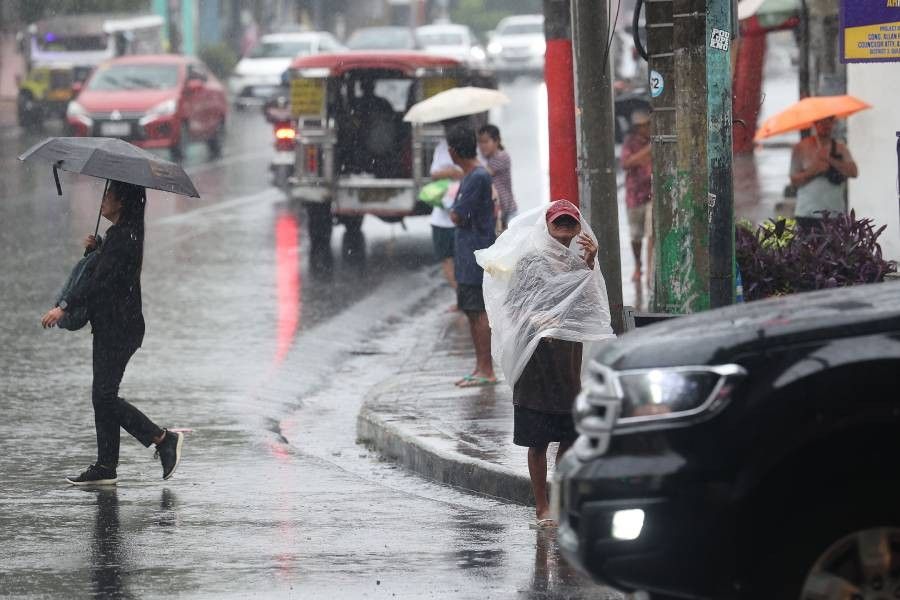
Upgrade to High-Speed Internet for only ₱1499/month!
Enjoy up to 100 Mbps fiber broadband, perfect for browsing, streaming, and gaming.
Visit Suniway.ph to learn
Artwork shows a gavel and a smartphone riddled with disinformation or "fake news."
Graphics by Philstar.com / Anj Andaya
MANILA, Philippines — The Department of Information and Communications Technology (DICT) is strengthening its 1326 hotline to improve how the government responds to cybercrime, scams and disinformation, a DICT official said Friday, June 6.
“Palalakasin natin itong hotline 1326,” DICT Assistant Secretary Renato Paraiso said in an interview aired on People’s Television Network’s "Bagong Pilipinas."
(We will strengthen this hotline 1326.)
"Magkakaroon tayo ng mas malawakang response mechanism at feedback mechanism. Iyon ang importante,” he added.
(We will have a broader response and feedback mechanism. That’s what’s important.)
Paraiso explained the hotline, which serves as the public’s first point of contact in reporting online scams, phishing schemes and fake social media posts, is being integrated into the government’s eGov app and eReport platform to allow reporting through multiple channels.
Reports submitted by phone, online forms, or messaging apps will be linked to a centralized database for faster processing.
"Kapag nag-report kayo, kami mismo ang tatawag ulit sa inyo para sabihin ano na ang status ng kaso ninyo, ano na iyong progress ng kaso ninyo, may kailangan pa ba kami sa inyo. Iyon talagang balak natin attribution, apprehension, prosecution, conviction. Hanggang doon ho ang gusto natin gawin," the DICT official said.
(When you file a report, we ourselves will call you back to update you on the status and progress of your case, and to check if we need anything else from you. Our goal really is attribution, apprehension, prosecution and conviction. That’s what we aim to achieve.)
He acknowledged that many victims of online fraud hesitate to report cases out of shame or distrust in government processes, but said the hotline aims to change that by providing clear and consistent updates to complainants.
As part of its expanded efforts against disinformation, the DICT is also partnering with the Presidential Communications Office (PCO) to implement a system of oversight in verifying online content.
Paraiso said the agreement between DICT Secretary Ivan John Uy and PCO Secretary Jay Ruiz would position the PCO as the lead agency on fact-checking, while the DICT, through its Cybercrime Investigation and Coordinating Center, will act on fake news cases flagged by the PCO.
“The discussion was baka hindi akma or hindi tama na ang gobyerno mismo ang mag-fact-check pero dapat mayroong sistema ng oversight. Kumbaga government will be the fact-checkers of the fact-checker. So, iyon ang pinag-aaralan nating sistema," he said.
(The discussion was that it might not be appropriate or right for the government itself to do the fact-checking, but there should be a system of oversight. In other words, the government will act as the fact-checkers of the fact-checkers. That’s the system we’re currently studying.)
The DICT said the goal is to empower Filipinos with tools and access to fight misinformation and online fraud while holding perpetrators accountable through a more responsive and transparent system.

 12 hours ago
3
12 hours ago
3



